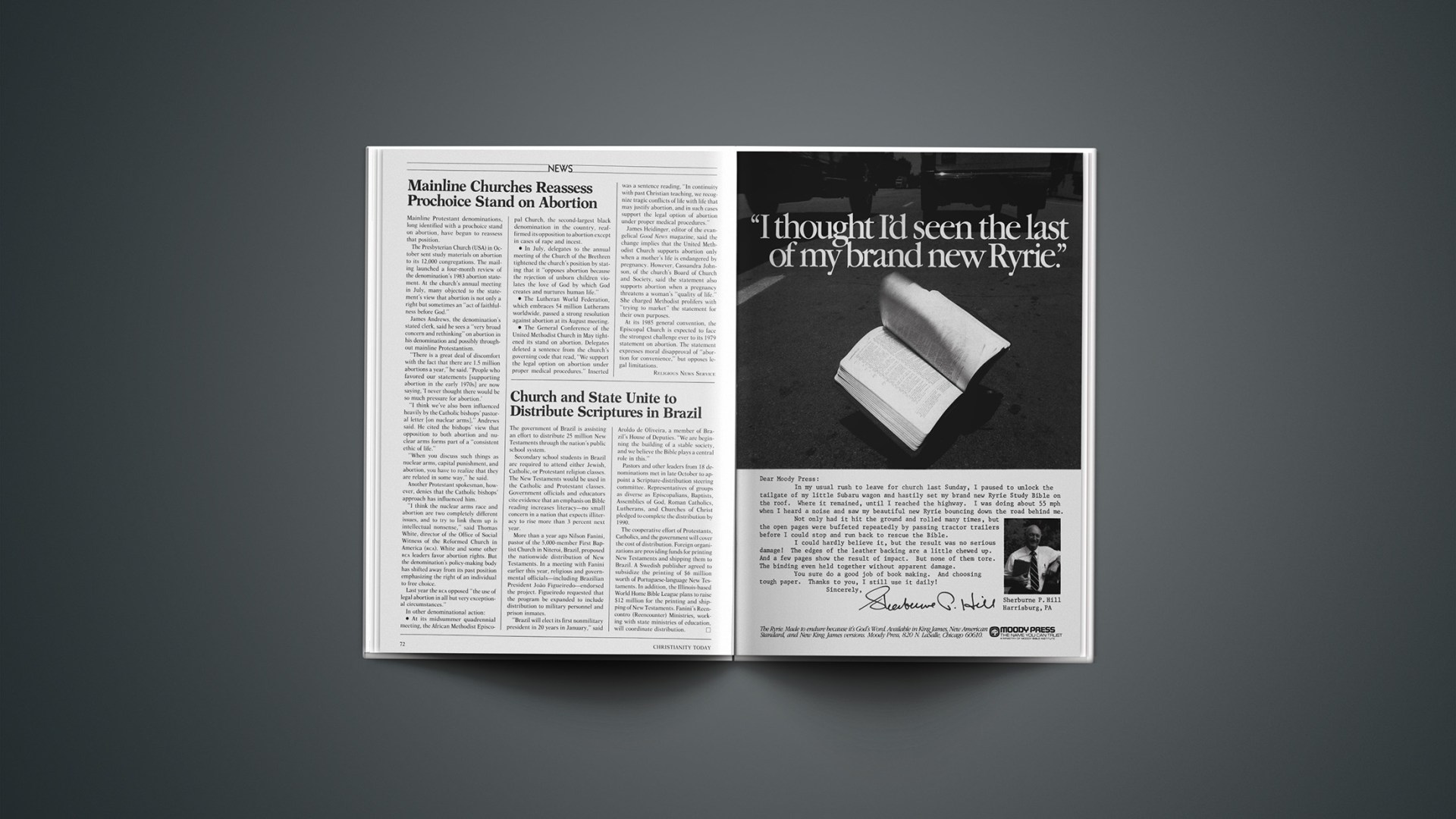The government of Brazil is assisting an effort to distribute 25 million New Testaments through the nation’s public school system.
Secondary school students in Brazil are required to attend either Jewish, Catholic, or Protestant religion classes. The New Testaments would be used in the Catholic and Protestant classes. Government officials and educators cite evidence that an emphasis on Bible reading increases literacy—no small concern in a nation that expects illiteracy to rise more than 3 percent next year.
More than a year ago Nilson Fanini, pastor of the 5,000-member First Baptist Church in Niteroi, Brazil, proposed the nationwide distribution of New Testaments. In a meeting with Fanini earlier this year, religious and governmental officials—including Brazilian President Joāo Figueiredo—endorsed the project. Figueiredo requested that the program be expanded to include distribution to military personnel and prison inmates.
“Brazil will elect its first nonmilitary president in 20 years in January,” said Aroldo de Oliveira, a member of Brazil’s House of Deputies. “We are beginning the building of a stable society, and we believe the Bible plays a central role in this.”
Pastors and other leaders from 18 denominations met in late October to appoint a Scripture-distribution steering committee. Representatives of groups as diverse as Episcopalians, Baptists, Assemblies of God, Roman Catholics, Lutherans, and Churches of Christ pledged to complete the distribution by 1990.
The cooperative effort of Protestants, Catholics, and the government will cover the cost of distribution. Foreign organizations are providing funds for printing New Testaments and shipping them to Brazil. A Swedish publisher agreed to subsidize the printing of $6 million worth of Portuguese-language New Testaments. In addition, the Illinois-based World Home Bible League plans to raise $12 million for the printing and shipping of New Testaments. Fanini’s Reencontro (Reencounter) Ministries, working with state ministries of education, will coordinate distribution.










